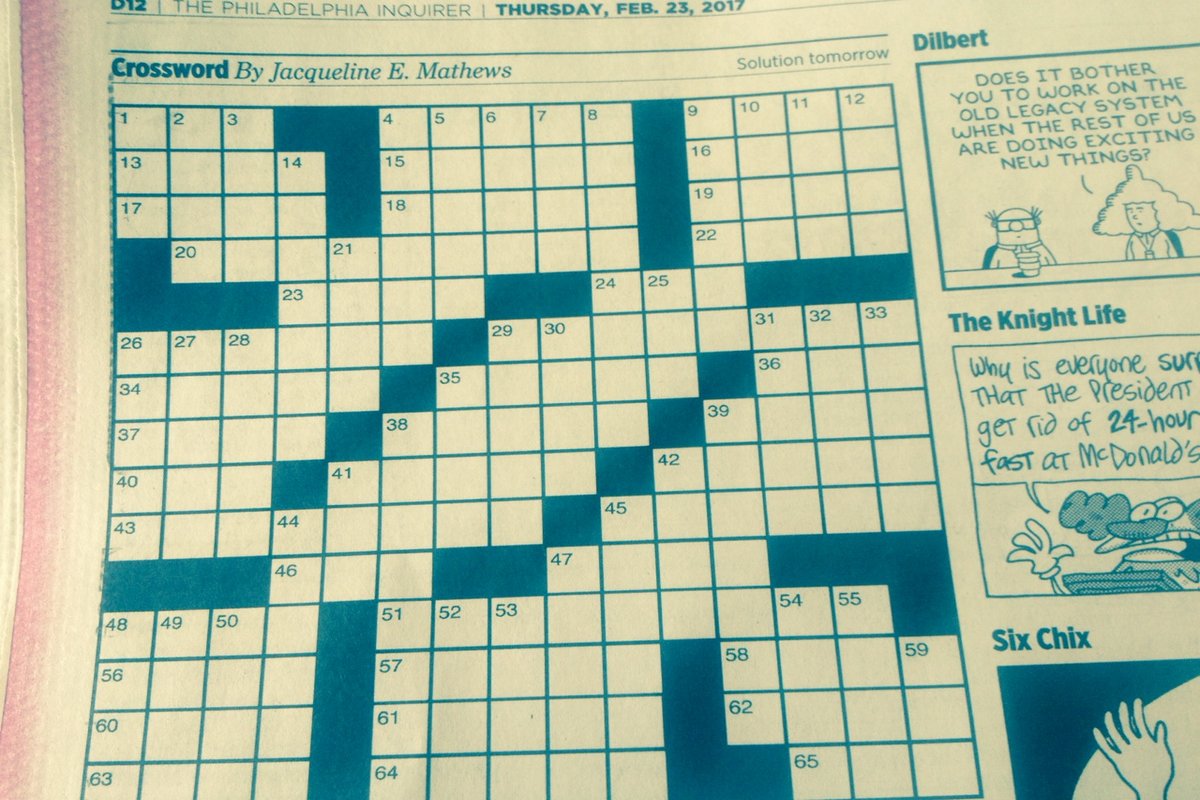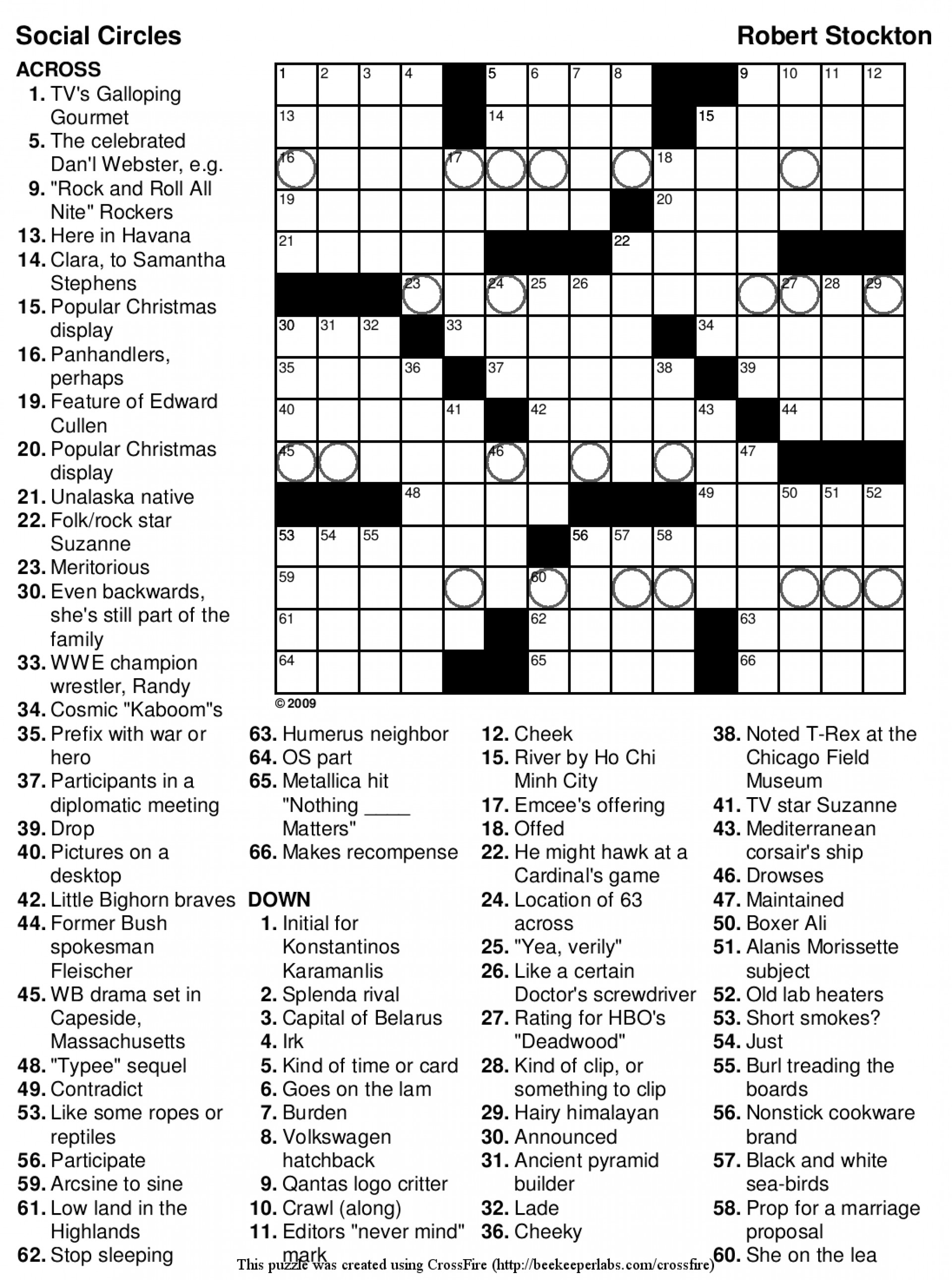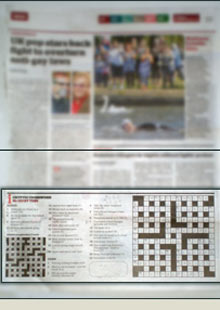

The discovery that some Times readers were not so clever after all, might have led to some more “cross” words.The New York Times is being ripped by social media users for publishing what they deemed a swastika-shaped crossword puzzle on the first night of Hanukkah. The chances are that many of those who had objected could do neither of them, but no-one took an opinion poll on that particular subject. At first, its more stuffy readers objected strongly to such an outrageous pandering to popular taste, so the paper hastily gave them a Latin and a Greek crossword to show that there was nothing undignified about such puzzles. The most famous crossword in the world appears each day in The Times, and has done each day since 1930. Interestingly enough, the “sadistic” kind of crossword has only caught on in Britain, and has proved less popular elsewhere. The first compiler to indulge in these word-schemes was hidden behind the pseudonym “Torquemada” which was a nice idea, because the original Torquemada was the first Inquisitor-General of Spain, a man renowned for his pitiless cruelty. You may have noticed how difficult some crosswords are, with complicated anagrams, obscure words, the rarest of quotations, and all sorts of tricks of the trade thought up by the tortuous minds of those responsible for making the crossword as perplexing as possible. By the time he had completed his arduous task, he had come up with the first British crossword, and the word “honour” had vanished altogether. At first he thought it would be plain sailing, simply a matter of adding a “u”, but, of course, it was anything but easy. He paid for his carelessness, because the day before the paper appeared, he was rung up to alter the puzzle. He had got the puzzle from America, and had failed to notice that one of the answers was spelt in American, not English, “honor”, not “honour”. Shepherd’s effort appeared in the Sunday Express. But the first official British crossword dates from November 2, 1924, when C. Marker of Edmonton, London, seems to have been the first to bring the idea across the Atlantic, in August 1924, when he put up a big crossword in a showroom, placing it in the window as an advertisement. The idea soon caught on and became a regular feature of the paper.Ī Mr. A typical clue was “a boy” in three letters, the answer being “lad”. From this, he invented the first real crossword, by no means a difficult one. One day, he remembered an old game his grandfather had taught him called Magic Square, or Double Acrostic, a sort of simple crossword without the black squares.

He was responsible for the “tricks and jokes department” of the paper. In fact, the first crossword was compiled by British-born Arthur Wynne and appeared in the New York World on December 21, 1913. Dawe was not the inspired inventor of crossword puzzles, but his extraordinary story is worth telling not only for itself but to show the incredible hold that crosswords had and have to this day on hundreds of thousands of people. On June 6th, the Allies successfully landed, taking the enemy by surprise. Dawe and believed his story, then left for London. To top it all, the answer on June 1 was Neptune, the code-word for the naval part of the invasion. On May 2, the answer to a clue was Utah, one of the projected Allied landing beaches, on the 22nd, Omaha, another of them, on the 27th, the answer was Overlord, the very name of the entire operation, and on the 30th, Mulberry, the name of the two artificial floating harbours that were to be taken to Normandy. It was sheer coincidence, of course, but amazing all the same. Some mean-minded souls were suggesting that he must be a German agent. Dawe had managed to work more key codewords into his recent puzzles than anyone thought possible anyone in the secret that is, for the fewer people that knew about D-Day, the better the chances of success. The date was June 4, 1944, two days before the Allied invasion of France, the immortal D-Day that was to carry the war back into occupied Europe. Not that you could really blame the anti-espionage section. Now it appeared that either the Tower of London or a firing squad loomed. He was a physics teacher who happened to be good at concocting puzzles. Leonard Sidney Dawe was more than somewhat startled, for he was not exactly famous, even though his anonymously-invented crosswords were.

There he was minding his own business, thinking up the Daily Telegraph crossword every day with his friend, Melville Jones, when suddenly counter-intelligence in the shape of two gentlemen from M.I.5 moved in on him.


 0 kommentar(er)
0 kommentar(er)
